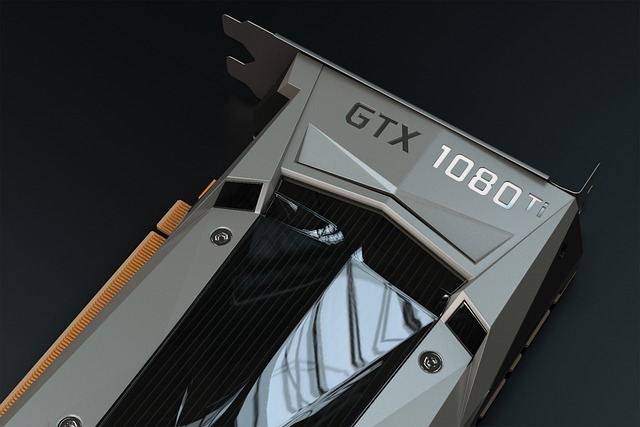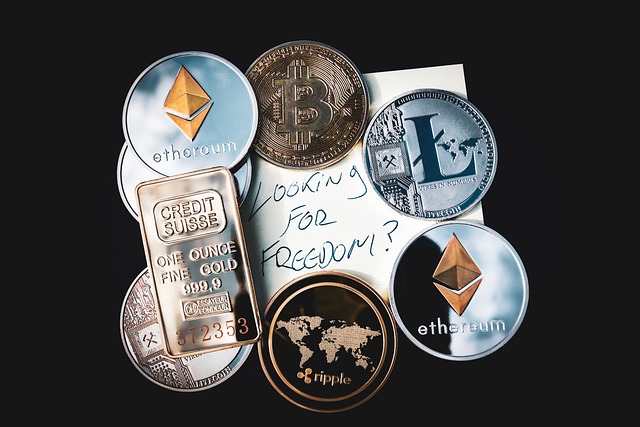Navigating DeFi Risk: A Comprehensive Guide for Investors
Navigating DeFi Risk: A Comprehensive Guide for Investors

Understanding DeFi and its Risks
Decentralized Finance, also known as DeFi, has emerged as a revolutionary concept in the world of finance. By using blockchain technology and smart contracts, DeFi aims to create a transparent and open financial ecosystem that operates without intermediaries. However, as with any new and disruptive technology, it comes with its fair share of risks that investors and users should be aware of.
One of the main risks associated with DeFi is the security of the platforms and the smart contracts they are built upon. While blockchain technology is touted for its immutability and security, vulnerabilities in the code can still be exploited by malicious actors. These vulnerabilities can pose a significant risk to the funds and personal information of users. Therefore, it is crucial for individuals to carefully assess the security measures implemented by DeFi platforms and ensure that proper audits have been conducted to identify and address any potential weaknesses. Additionally, users should also consider diversifying their investments across different platforms to mitigate the risk of a single point of failure.
Recognizing the Importance of Risk Management in DeFi
The world of decentralized finance (DeFi) presents exciting opportunities for investors and participants in the cryptocurrency space. With its innovative ideas and potential for high returns, it’s no wonder that DeFi has gained significant attention in recent years. However, it is crucial to recognize the importance of risk management when engaging in DeFi activities.
One of the primary reasons why risk management is crucial in DeFi is the inherent volatility in the cryptocurrency market. Prices can fluctuate wildly, and without a sound risk management strategy, investors may find themselves exposed to substantial losses. Additionally, the decentralized nature of DeFi platforms means that there is often no central authority to step in and rectify any issues or protect investors. Therefore, it becomes paramount for individuals to educate themselves about the potential risks involved and implement risk management measures to safeguard their investments.
Identifying Potential Risks in the DeFi Space
One of the primary challenges in the decentralized finance (DeFi) space lies in identifying and understanding the potential risks involved. Despite the promise of increased financial accessibility and autonomy that DeFi offers, it is crucial for users to be aware of the risks that come with it. A fundamental risk in DeFi is the vulnerability to hacking and security breaches. As many DeFi platforms are built on blockchain technology, they are not immune to cyber-attacks and vulnerabilities. Hackers can exploit these vulnerabilities to gain unauthorized access to user funds or manipulate smart contracts, resulting in significant financial losses. It is essential for users to thoroughly evaluate the security measures and protocols implemented by DeFi platforms before engaging in any transactions.
In addition to security risks, another potential risk in the DeFi space is the volatility of cryptocurrency prices. Most DeFi platforms rely on cryptocurrencies as their underlying assets, which are known for their price fluctuations. The value of cryptocurrencies can fluctuate drastically within a short period, leading to potential losses for investors. Furthermore, the absence of regulatory oversight in the DeFi space can exacerbate the volatility, as there are no mechanisms in place to control market manipulation or stabilize prices. Therefore, individuals engaging in DeFi investments must carefully assess the potential risks associated with cryptocurrency price volatility and determine their risk tolerance before entering the market.
Assessing the Security of DeFi Platforms
DeFi platforms have gained significant popularity in recent years, attracting a large number of users looking for decentralized financial solutions. As more funds flow into these platforms, the importance of assessing their security becomes paramount. When evaluating the security of DeFi platforms, one of the key factors to consider is the robustness of their underlying blockchain infrastructure. The security of the blockchain network is crucial as any vulnerabilities or weaknesses could expose the platform to potential hacks or attacks. Therefore, it is essential to assess the platform’s blockchain technology and ensure that it utilizes secure protocols and encryption methods to safeguard user assets.
Another aspect to consider when assessing the security of DeFi platforms is the credibility and reputation of the developers. DeFi platforms are built and maintained by a team of developers who are responsible for creating and implementing the platform’s code.

Evaluating Smart Contracts and Audits in DeFi
When it comes to evaluating smart contracts and audits in the world of decentralized finance (DeFi), it is essential to prioritize security and due diligence. Smart contracts are self-executing computer programs that enforce the terms of an agreement between parties. In DeFi, these contracts play a crucial role in managing transactions, loans, and other financial activities.
One key aspect to consider when evaluating smart contracts is their level of code transparency and auditability. Open-source code allows for better scrutiny and can help identify potential vulnerabilities or flaws. Audits, conducted by independent security firms, provide an extra layer of assurance by assessing the code’s functionality and security. It is important for DeFi projects to undergo regular audits to mitigate the risks associated with code vulnerabilities and potential exploits.
Analyzing Liquidity Risks in DeFi Investments
One of the key aspects to consider when investing in decentralized finance (DeFi) is the liquidity risk associated with such investments. Liquidity refers to the ease of buying or selling an asset without causing significant price impact. In the context of DeFi investments, this means the ability to convert your digital assets into cash or other cryptocurrencies quickly and efficiently.
Liquidity risks in DeFi can arise due to various factors. Firstly, the market for DeFi tokens can be highly volatile, leading to sudden price fluctuations and potential difficulties in selling your assets at a desired price. Additionally, certain DeFi projects may have limited liquidity pools, resulting in low trading volume and increased slippage when executing transactions. This can make it challenging to enter or exit positions without impacting the market price. Therefore, investors must carefully assess and monitor the liquidity of different DeFi investments to ensure they can readily convert their assets whenever needed.
Managing Counterparty Risks in DeFi Transactions
Counterparty risks are a major concern in DeFi transactions, as they involve interaction with other individuals or entities. Unlike traditional financial institutions that act as intermediaries, DeFi platforms rely on smart contracts to facilitate transactions. While this decentralized approach offers advantages such as eliminating the need for third-party intermediaries and lowering costs, it also exposes participants to counterparty risks.
In DeFi, counterparty risks can manifest in various ways. One common risk is the possibility of counterparties defaulting on their obligations. Since transactions occur directly between participants without a trusted intermediary, there is a real chance that one party may fail to fulfill their part of the transaction. Additionally, participants must take into account the reliability and reputation of counterparties, as engaging with untrustworthy individuals or entities could result in financial losses. Therefore, it is crucial for DeFi participants to carefully assess and manage counterparty risks to protect their investments and ensure successful transactions.
• Counterparty risks are a major concern in DeFi transactions
• Unlike traditional financial institutions, DeFi platforms rely on smart contracts to facilitate transactions
• This decentralized approach eliminates the need for intermediaries but exposes participants to counterparty risks
• One common risk is the possibility of counterparties defaulting on their obligations
• Transactions occur directly between participants without a trusted intermediary, increasing the chance of one party failing to fulfill their part
• Participants must consider the reliability and reputation of counterparties to avoid financial losses
• Careful assessment and management of counterparty risks are crucial in protecting investments and ensuring successful transactions.
Mitigating Market Volatility Risks in DeFi
Market volatility is an inherent characteristic of the cryptocurrency market, and the DeFi space is no exception. Fluctuations in the value of digital assets can significantly impact the performance of DeFi investments. Therefore, it is crucial to have a risk management strategy in place to mitigate market volatility risks.
One way to reduce the impact of market volatility is through diversification. By spreading investments across various DeFi platforms and assets, investors can minimize the risk of being heavily affected by the price movements of a single asset or platform. Diversification allows for exposure to different types of assets and investment strategies, which can help balance out the potential losses incurred from market volatility. Additionally, regularly reviewing and rebalancing the portfolio can ensure that the investments remain aligned with the desired risk tolerance and investment objectives, adapting to changing market conditions as necessary.
Examining Regulatory and Compliance Risks in DeFi
Regulatory and compliance risks are key considerations when venturing into the decentralized finance (DeFi) space. As a relatively new and rapidly evolving industry, DeFi operates within a complex regulatory landscape that is still catching up with the innovative technologies it encompasses. One of the main challenges in this regard is the lack of clear and standardized regulations specific to DeFi platforms, which can leave investors and participants vulnerable to potential legal and compliance pitfalls. The absence of established rules and guidelines makes it essential for individuals to conduct thorough due diligence before engaging with DeFi projects, ensuring they understand the legal implications and potential risks associated with their involvement.
Non-compliance with relevant regulations can have far-reaching consequences, including legal and financial penalties, reputational damage, and restrictions on operations. The decentralized nature of many DeFi platforms presents additional challenges when it comes to regulatory compliance. As transactions occur directly between users without intermediaries, traditional regulatory frameworks may struggle to keep pace with technological advancements. This carries inherent risks, as unauthorized activities, fraudulent schemes, money laundering, and other illicit practices can potentially operate within the DeFi ecosystem due to the lack of oversight. Despite these challenges, increased dialogue between regulators and industry participants is beginning to pave the way for more concerted efforts to establish a regulatory framework that balances innovation and investor protection in the DeFi space.
Implementing Risk Mitigation Strategies in DeFi Investments
When it comes to investing in decentralized finance (DeFi), it’s crucial to have a game plan in place to mitigate potential risks. While the DeFi space offers great opportunities for profit, it also poses its fair share of challenges and uncertainties. By implementing risk mitigation strategies, investors can better navigate this volatile landscape and safeguard their investments.
One key strategy is diversification. Instead of putting all your eggs in one basket, consider spreading your investments across multiple projects. This way, if one project experiences a setback or failure, your overall portfolio will have a buffer to absorb the loss. Diversification can help reduce the impact of any single project’s performance on your investment returns. Additionally, staying updated with the latest news and developments in the DeFi space is crucial.

What is DeFi?
DeFi stands for Decentralized Finance, which refers to a system that uses blockchain technology to provide financial services without the need for intermediaries like banks.
Why is risk management important in DeFi?
Risk management is crucial in DeFi because the decentralized nature of the system exposes investors to various risks, including security vulnerabilities, smart contract flaws, liquidity risks, and market volatility. Implementing risk mitigation strategies helps protect investments.
What are some potential risks in the DeFi space?
Some potential risks in DeFi include security breaches, hacks, smart contract bugs, liquidity shortages, market crashes, and regulatory uncertainties.
How can I assess the security of DeFi platforms?
You can assess the security of DeFi platforms by looking at their track record, reputation, security protocols, and community feedback. It’s also important to evaluate if they have undergone external security audits.
What should I consider when evaluating smart contracts in DeFi?
When evaluating smart contracts in DeFi, you should consider factors like the code quality, transparency, audit reports, and the reputation and expertise of the team behind the smart contract.
What are liquidity risks in DeFi investments?
Liquidity risks in DeFi investments refer to the potential for insufficient liquidity in a market or protocol, which can impact the ability to buy or sell assets at desired prices. This can lead to slippage and potential losses.
How can I manage counterparty risks in DeFi transactions?
To manage counterparty risks in DeFi transactions, you can use decentralized exchanges that eliminate the need for a central counterparty. Additionally, diversifying your investments and conducting thorough due diligence can help mitigate counterparty risks.
How can I mitigate market volatility risks in DeFi?
To mitigate market volatility risks in DeFi, you can use strategies like stablecoin investments, hedging techniques, and setting stop-loss orders.

What are regulatory and compliance risks in DeFi?
Regulatory and compliance risks in DeFi arise from the evolving regulatory environment and potential non-compliance with financial regulations. It’s essential to stay updated on regulatory developments and ensure compliance with applicable laws.
How can I implement risk mitigation strategies in DeFi investments?
To implement risk mitigation strategies in DeFi investments, you should diversify your portfolio, conduct thorough research, assess security measures, regularly monitor your investments, and stay informed about market and regulatory changes.
Todays Featured Product:
Buy, exchange and grow your crypto securely with a Ledger hardware wallet, combined with the Ledger Live app. It’s never been easier to keep your crypto safe and accessible. Buy direct from Ledger.com and get todays Special Offers Here.




